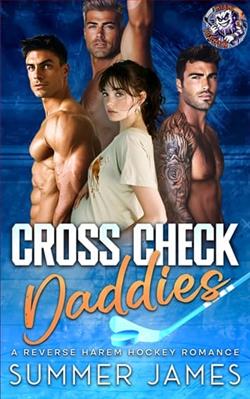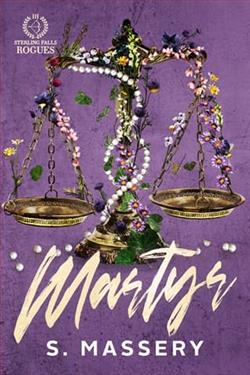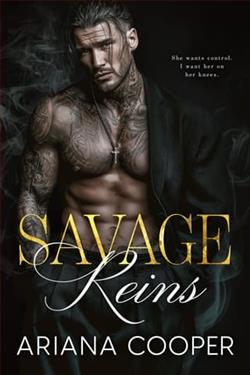Page 79 of Happiness for Beginners
But then Jake shook his head. “Actually, no. That just devolves into ‘Bra,’ ‘Brew,’ ‘Brewsky,’ ‘Beer Can,’ ‘Beer Ball,’ ‘Boner.’”
He came to a stop, then, waiting for what I’d say.
A month before this moment—even two weeks before—I would have shook my head like they were idiots. But now I had a new appreciation for nicknames. And for Duncan, as it happened. And for Jake, as well. It occurred to me that every single one of those names was some basic, goofy substitute for “friend.” And I felt so grateful, then, that Duncan had Jake. That they had each other.
“He’s lucky to have you,” I said.
“He is lucky,” Jake said. Then he made his finger into a pistol, pointed it at me, and said, “But I’m luckier.”
***
Beckett wasn’t wrong about Painted Meadow. It was, after all, breathtaking. It was better than he had described, and better than I even would’ve imagined before I saw it for myself. It was a perfect place to spend a Zero Day and have a summer solstice party, and once we were there, I was glad we’d pushed ahead. Sort of.
Here’s what greeted us as we rounded the trail and Beckett shouted, “This is it, people!” A sunny green meadow with calf-height grass and wildflowers bowing and fluttering in the breeze. White butterflies. Above, a brilliant blue sky with cotton clouds. On every side, mountain peaks, cradling up around us. The air was cool, but the sun was warm. As each of us stepped into the meadow, we stopped still at the sight. We couldn’t keep walking and behold it at the same time.
“You were right,” I said to Beckett, as he stopped beside me. “It is like a painted meadow.”
“Yeah,” he said, “but that’s not why they call it Painted Meadow.”
I looked over.
“This was the site of a Shoshone massacre,” Beckett said. “So many people were killed, the meadow was painted with blood.”
“I didn’t realize the Shoshone were so bloodthirsty,” I said, looking around.
But Beckett gave me a look. “They weren’t,” he said. “The Shoshone were the ones who were massacred.”
“Oh.”
Beckett turned to the group. “There’s a stream at the east edge,” he said. “We’ll pitch camp there. And they say this place is haunted, so be on your best behavior.” Then he looked around with a big smile, and, for what felt like the first time, I genuinely liked him. “Welcome to my favorite place in the Absarokas.”
***
My first act of business there was to exchange my boots for flip-flops. Just that one act—and taking off my pack—made me feel a hundred pounds lighter. My blisters were healed now, and the sight of the tender new pink skin where they’d been made me feel strangely optimistic. There was business to take care of that afternoon—setting up camp, making dinner—but the prospect of a whole, luxurious day ahead with nothing whatsoever to do made everything else seem easy. I smiled at everybody. I closed my eyes when the breeze blew over me and tried to drink the feeling in through my skin. I paused to look around at all the colors of flowers in the field: magenta, baby blue, butter yellow.
This,I thought. This made it all worth it. This place was the reason I’d come here, and this feeling of awe was exactly what I’d been looking for. It made all the humiliations and injuries and blisters and loneliness worth it.
Cooking dinner was bliss. Falling asleep that night was bliss. And the next day was bliss, too—at least at first.
We woke as usual, made our coffee, ate breakfast, and tidied up our camps. But instead of lining up for more marching through even more mountains, we were free. The morning was cold, but as the sun rose, it warmed my skin, and I had my sweater off by ten. For the rest of the day, I did nothing. Delicious nothing. Some of the big guys went exploring, and Vegas and Jake went to practice their fly-fishing in the stream. Some of the girls decided to “do laundry,” which meant scooping up river water and walking it to the farthest, driest side of the meadow, pouring it over their salt-caked socks and T-shirts, and wringing them out a few times before setting them on a rock to bake in the sun.
I watched them work, but I didn’t join. We were way past the point of trying to get clean. Instead, I laid myself on my own rock to bake in the sun. Later, I might go looking for wildflowers, press a few into my journal—an Indian paintbrush, a touch-me-not, and a coreopsis—and try to identify others using a booklet Mason lent me. I might help Windy collect dandelions and miner’s lettuce for a salad for our solstice dinner. I might cheer for the boys when they brought back three (Beckett’s limit) fish to fry up for dinner.
But that morning, all I wanted to do was nothing. I lay melted on my sun-warmed rock. Massacre or no, today, in the warm sunshine, this place was exactly what I’d always seen when I pictured heaven: sunshine, wildflowers, a meadow—and air as clear as water, and just as cool. As strange as it sounds, here, of all places, I felt profoundly close to my lost brother—like I was near him, somehow. I could imagine him in this field. I could see his eight-year-old self with his knobby knees and red sneakers skittering through the long grass or angling down to the riverbank to see what the big guys were up to. He would love it here. He could almost be here, just out of sight somewhere. If I pretended hard enough, it was sort of like he was.
The idea of it filled my eyes with tears. But I was okay. There was too much beauty around me, and too much tranquility, to feel truly sad. I never really felt tranquil, ever—and yet here, under the warming sun, what choice did I have? I had a day of rest, a gentle breeze, and I was lying so limp across a rock that I was practically boneless. And that thought reminded me of a poem I loved to read to my first graders: “The Ballad of the Boneless Chicken.” I smiled at the memory and realized that now, every time I read that poem, I’d remember this day, this boneless moment on this big rock, and for that reason, I’d always carry the memory. Really, I had no option but to be happy.
And then some of the girls came to join me. Uno, Dosie, and Caboose.
They’d finished up their washing, and sat on my rock to warm up and dry out.
Dosie said, “Hey, Holdup. You look plum tuckered.”
I was. In a good way. “Yep,” I said. “Rode hard and put away wet.”
They lay down and arranged themselves all around me on the rock, following my sun-soaking lead, and I felt so pleased they were there. I’d gotten so used to being alone over the past year, it still shocked me when I wasn’t. I was glad to see them. I was glad to have company.
At first, they yammered about pleasant things—the no-bake cookies we were going to make for the party, the best way to stretch out a tight hamstring, the M&M Uno had found forgotten in her daypack. I enjoyed listening to them and found myself thinking of them like chirpy little songbirds. It surprised me, but I couldn’t help deciding they were fun to have around. Until Caboose said, “Let’s plan the wedding.”















